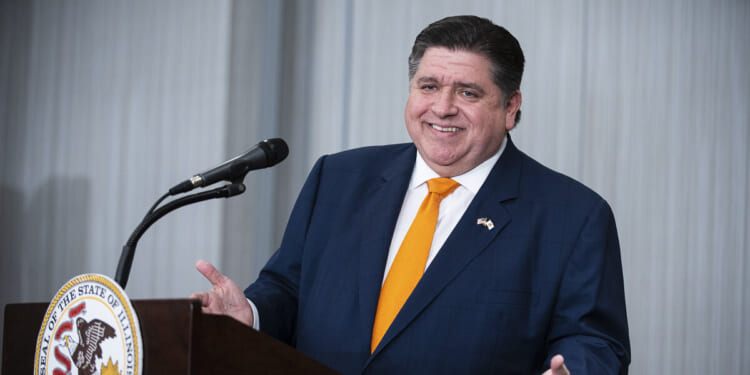As veto session begins and power goes back to the Democratic majority state legislature, the consequences of a single-party state are more evident than ever.
Pritzker could have used his veto power when the regular session ended to address the numerous bills that will make it harder for those living, working and paying taxes in Illinois.
Instead, he was a rubber stamp for Illinois’ Democratic majority, signing 433 of 436 bills into law.
Of those 436 bills that passed both chambers, 59 were introduced by Republicans.
Only three bills were vetoed and the state budget implementation bill had a $161 million error in capital spending that Pritzker corrected by vetoing just that line – passing the rest of the bill. That means less than 1% of bills received some type of veto.
Senate Bill 2510, the fiscal year 2026 budget appropriation bill, was chopped, swapped and passed within 24 hours. The need for Pritzker to fix the state budget after the fact shows the recklessness of a dominant political party putting a record $55.2 billion budget together at the last minute and in secret.
Veto session is when the legislature has the opportunity to override any gubernatorial vetoes. But this year, Pritzker has made sure there is a light load with only three vetoes to consider.
The Democratic supermajority legislature can focus more time and energy to revive or advance stalled bills from the regular session. Taxes for Chicago-area mass transit and energy issues seems to be likely topics.
States with more electoral competition might see more pushback from the governor. But in Illinois, if incumbents even face a challenger there is little threat of losing their seats.
This isn’t the first time Pritzker’s veto power failed to come through for voters. In 2018 he promised to veto any partisan legislative or congressional maps, but when lawmakers passed some of the most gerrymandered maps in the nation, he signed them into law without objection. He further entrenched disproportionate Democratic control of the state legislature, its U.S. House members and even the Illinois Supreme Court.
With so much of the deck stacked in their favor, it should be no shock that only 14% of incumbents who ran for re-election faced contested primaries. In fact, out of 44 states that had state elections on Nov. 5, 2024, Illinois ranks 39th on the Ballotpedia 2024 State Legislative Competitiveness Report. Illinois has ranked within the bottom 10 in seven of eight state elections since 2010.
Pritzker should be looking out for Illinois voters and taxpayers, not act as a rubber stamp for the lawmakers in his party. As the chief executive of Illinois, legislation from both sides of the aisle should face scrutiny because it will impact citizens from Rockford to Cairo.
The people of Illinois should be provided with opportunity and choice, both of which are hindered by the gerrymandered maps that have determined the single-party state of Illinois. Now that the man largely responsible for that situation, former Illinois House Speak Mike Madigan, is behind bars, Illinois voters need to hold the governor and state lawmakers responsible.
Because the politicians show no inclination to give up their comfy status quo, voters’ only option may be to once again demand fair maps through a citizen-initiated petition.










